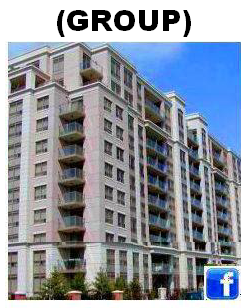Sultan Ibrahim Sultan Iskandar
The Sultan of Johor’s administrative decisions and his business forays are much talked about by people both within and outside the corporate circles.
In the past six months alone, he has forged business alliances with the biggest of Malaysian corporations owned by local tycoons who normally shy away from doing business with royalty. He has also cut some large land and property deals that have attracted more than their fair share of attention due primarily to their pricing.
In December alone, he sold a parcel of prime land in Johor Baru to China-based Guangzhou R&F Properties Co Ltd for a record price and acquired a 20% stake in Berjaya Times Square Sdn Bhd (BTSSB) in Kuala Lumpur at a steep discount of 37% to its net asset value.
What also caught the attention of the nation was the Sultan’s declaration that Johor’s rest days would be Friday and Saturday.
The Sultan announced that this would be effective from Jan 1, 2014, and that he had made the decision after receiving feedback from various quarters and to allow Muslims to perform their prayers with peace of mind.
This takes the state — which has been positioned to attract international investors from Singapore — back to the days before 1994 when it observed Friday and Saturday as the off days.
However, the move has made national strategic investment company Khazanah Nasional Bhd uneasy because it is targeting the international community for its sprawling development Iskandar Malaysia, which is touted as a cheaper alternative destination to costly Singapore.
Internationally, Saturday and Sunday are the rest days and when the financial system shuts down. So, changing the rest days in Johor is likely to negatively impact the marketing of Iskandar Malaysia.
But while the new weekend has unnerved the business community, the sale of a prime piece of property at a record price has proved the Sultan of Johor’s prowess in clinching good deals.
On Dec 2, Guangzhou R&F Properties announced to the Hong Kong Stock Exchange that it was acquiring 116 acres in Johor Baru from the Sultan for RM4.5 billion, which represents about RM890 psf — a new benchmark for waterfront land in a city closest to Singapore.
 By comparison, China-based Country Garden Ltd had paid Iskandar Waterfront Holdings Sdn Bhd RM363 psf for 57 acres of waterfront land in Johor Baru.
By comparison, China-based Country Garden Ltd had paid Iskandar Waterfront Holdings Sdn Bhd RM363 psf for 57 acres of waterfront land in Johor Baru.
Guangzhou R&F Properties named the Sultan as the vendor in the exercise. The exact location of the land has not been disclosed, but it is believed to be the area where the old Customs, Immigration and Quarantine centre was sited.
Located next to the Causeway, the land faces Singapore and was eyed by many players.
When the CIQ was moved to its new location, the entire area it occupied, which included a customs and excise building and a yard to facilitate the parking of heavy vehicles, was said to have been taken over by the state.
There are no details on how the land came to belong to the Sultan or how much he had paid for it. But the valuation of the transaction has stunned the Johor property market as a whole because it comes at a time when there is a softening in asset prices.
Whether the Sultan will hold an interest in the development is also not known.
Ten days later, the Sultan acquired the 20% stake in BTSSB from Berjaya Assets Bhd — a company that is controlled by Tan Sri Vincent Tan of the Berjaya group — at a 37% discount to the latest net asset value of the Berjaya Times Square building.
Tan, a tycoon whose businesses range from gaming to property development and telecommunications services, is not the kind who would give up a stake in prime properties that easily.
So, the deal raised a number of questions.
Berjaya Assets has clarified that the discounted price was due to the stake being a minority interest in an unlisted company. It was also because of the “Sultan’s stature and business acumen”, it said in an announcement to Bursa.
Nevertheless, the deal has stirred talk that bigger things are in store for Berjaya Assets, which has 18 acres of prime land on the Johor Baru waterfront. The speculation is that a sizzling entertainment centre that would match the casino and resorts in Singapore will be built on the land.
In fact, in its latest annual report, Berjaya Assets alluded to the land being earmarked for a large entertainment centre.
Apart from property, Sultan Ibrahim has also stamped his authority on the power sector.
In August this year, SISP Power Sdn Bhd, a joint-venture company between the Sultan and YTL Power International Bhd, submitted the lowest bid for an Energy Commission (EC) job to build a 2,000mw, coal-fired power plant.
SISP Energy Sdn Bhd, a private company controlled by the Sultan, has a 30% stake in SISP Power while YTL Power International holds the rest.
SISP Power’s bid was marginally lower than that of 1Malaysia Development Bhd.
The EC has yet to announce the winner of the tender but the mere presence of the Sultan as a partner in SISP Power has sent the message that the joint venture is no pushover and a strong contender for future power projects.
While making waves in the corporate world, Sultan Ibrahim continues to stay in touch with his people. When Johor was hit by floods, he was there on the ground before the politicians came.
In June 2012, when Sultan Ibrahim caused a controversy by paying RM520,000 for the highly sought-after number plate WWW 1, 30,000 people turned up at his palace in a show of support. To them, he unveiled an orange custom-made Proton Hatchback bearing the number plate.
As Johor moves forward, its Sultan will continue to be the person to watch in 2014.
This article first appeared in The Edge Malaysia Weekly, on December 23, 2013.







![[Most Recent Quotes from www.11.com.my]](http://www.kitconet.com/charts/metals/gold/t24_au_en_usoz_2.gif)
![[Most Recent Quotes from www.kitco.com]](http://www.kitconet.com/charts/metals/silver/t24_ag_en_usoz_2.gif)




















0 comments:
Post a Comment